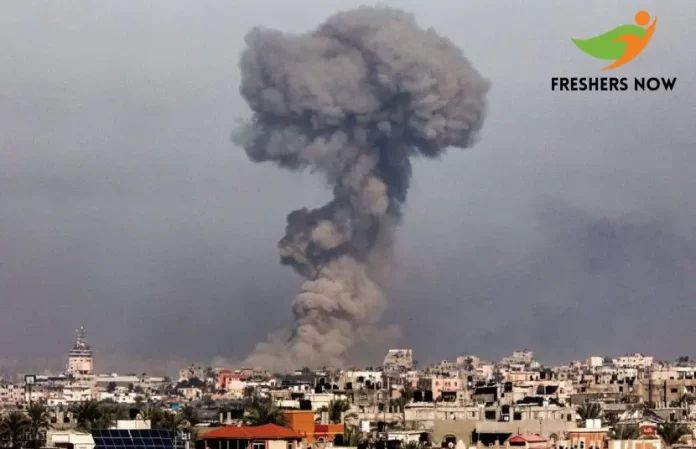
Heavy Fighting In Gaza’s Rafah Keeps Aid Crossings Closed: The ongoing conflict between Israeli forces and Palestinian militants has escalated in the southern Gaza city of Rafah, leading to a dire humanitarian situation. Despite plans for a full-scale invasion being temporarily halted, the limited incursion threatens to worsen Gaza’s already catastrophic conditions.
Rafah: A Humanitarian Crisis
Mass Displacement: Over 100,000 people have fled north from Rafah, rendering crucial aid crossings inaccessible and exacerbating the humanitarian crisis.
Refugee Situation: Many Palestinians, totaling over a million, have sought refuge in Rafah, crowding into UN shelters and makeshift camps. The city serves as a vital gateway for essential supplies such as food, medicine, and fuel.
Challenges in Aid Delivery
Closed Crossings: The main crossings near Rafah remain closed, hindering the delivery of supplies and the evacuation of the injured. This has created critical shortages of food and fuel in the city.
Lack of Humanitarian Access: Despite assurances of safe passage, the proximity to ongoing military operations makes it difficult for humanitarian workers to assist those in need effectively.
Impact on Gaza’s Infrastructure
Fuel Shortages: The closure of the Rafah crossing has disrupted the supply of fuel, vital for powering vehicles and sustaining essential services like hospitals and water treatment plants.
Access to Supplies: While Israel claims the nearby Kerem Shalom crossing is open, ongoing fighting prevents access from the Gaza side, further limiting the flow of essential goods.
Military Operations and Consequences
Intense Battles: Israeli troops are engaged in heavy fighting with Palestinian militants in eastern Rafah, resulting in casualties and damage to infrastructure.
Humanitarian Concerns: The conflict has intensified fears of a worsening humanitarian crisis, with the UN warning of a potential food shortage in southern Gaza by Saturday.
Continued Resistance
Hamas Resilience: Despite Israeli offensives, Hamas continues to regroup, maintaining control over parts of Gaza, including Rafah, which is seen as a key stronghold.
Northern Gaza: Heavy battles in the northern Gaza Strip indicate ongoing resistance, with Israel aiming to dismantle Hamas’ military capabilities.
Political Implications
International Pressure: The United States, deeply opposed to a full-scale invasion, threatens to withhold arms, complicating Israel’s military plans.
Ceasefire Efforts: Efforts by the US, Qatar, and Egypt to broker a ceasefire and secure the release of hostages have faced challenges, with both sides reluctant to compromise.
Conclusion
The situation in Rafah underscores the urgent need for a cessation of hostilities and concerted international efforts to address the humanitarian crisis. Without a lasting ceasefire and coordinated aid delivery, the suffering of civilians in Gaza will only escalate further.
Stay updated with the latest current affairs and insightful blog posts by following Freshersnow. Don’t miss out on future content that keeps you informed and engaged!
| You Can Also Check | |
| Current Affairs | |



